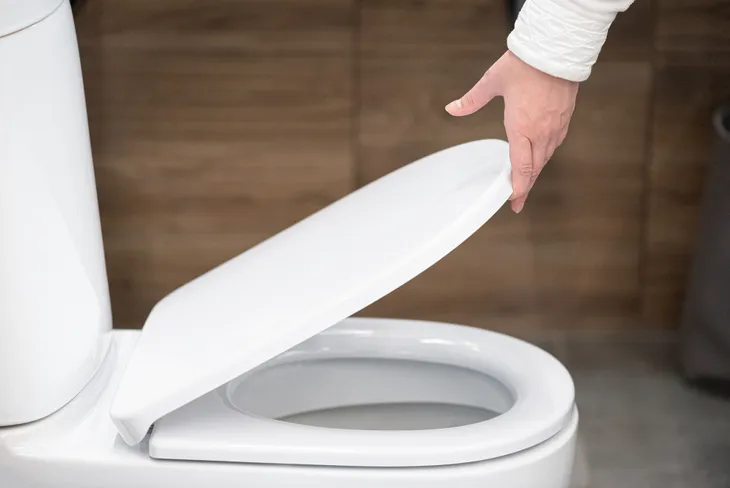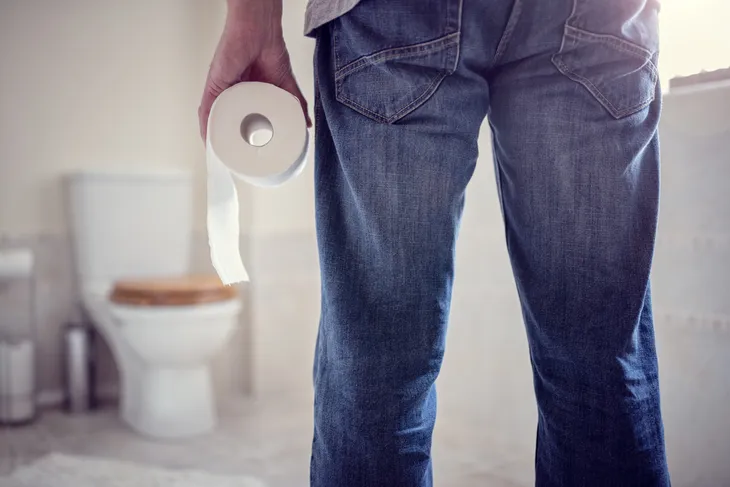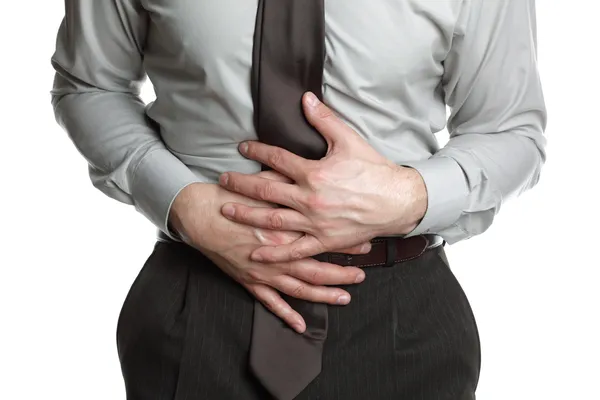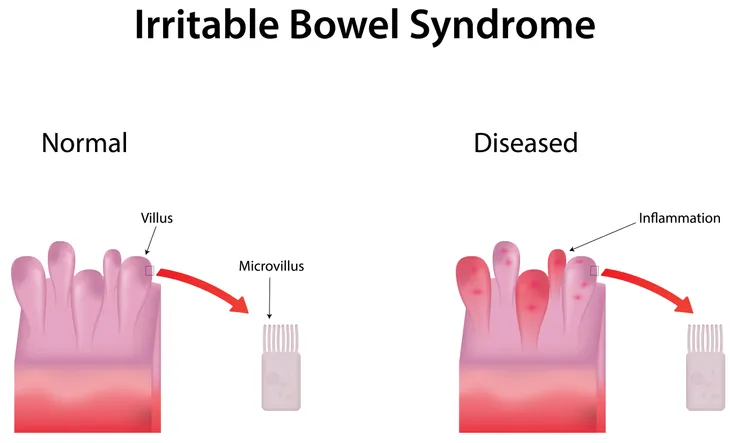You might not think very much of your daily bowel movements, but there is good reason to be mindful of how it looks and makes your body feel. Your stool can indicate a lot about your overall health — including the liver. Being aware of what a healthy stool is and what isn’t can ensure you’re getting medical help when it’s necessary.
While it can be taboo for people to be open and honest about stool, it’s something you should feel comfortable talking about to your doctor. This is especially important when your stool is abnormal in shape, color, and even smell. Here’s a rundown on the different things stool can say about your liver and other health problems.
Black Stool
When your stool is black, it’s not always something to be concerned about. Hopkins Medicine says the color can change depending on what you eat or drink. In fact, doctors can often tell what color beverage patients had to drink beforehand when performing a colonoscopy.
Penn Medicine says that iron supplements can also alter the color of your stool. Unfortunately, black and tarry stool can sometimes be an indicator of something more serious like bleeding or tumors in the digestive tract. If black stool is something you’re dealing with, then it’s time to see the doctor.
Red Stool
Your stool may also appear red if there is bleeding somewhere in the body. While this is something a person can experience during menstruation or due to constipation, it can also be a sign of digestive system issues.
Red stool can be a symptom of several problems, some of which include:
- Bleeding in the rectum or anus
- Abnormal blood vessels
- Swelling in the lining of the stomach
- Cancer in the digestive system
White Stool
Your stool can also be white, gray, or pale. Mayo Clinic says this can happen due to liver or gallbladder issues. It essentially means that your body has a lack of bile. Bile is produced by the liver and stored in the gallbladder. If your liver isn’t producing enough bile or if the bile is obstructed, then stool can appear white.
One potential cause is certain anti-diarrhea medications. Hepatitis and cirrhosis are two serious liver problems that can also lead to white stool.
If your stool is white, and you haven’t taken an anti-diarrhea medication, it’s time to contact your doctor.
Oily or Greasy Stool
Stool can sometimes appear oily or greasy, making it difficult to flush down. It can be normal once in a while when you’re eating foods high in fat, but it’s not something you should be experiencing on a regular basis.
A serious cause of oily stool could be chronic hepatitis C. This viral infection can lead to liver inflammation that can escalate to things like cirrhosis (scarring of the liver) or even liver cancer.
Other possible causes of oily stool include:
- Gallstones
- Pancreatic cancer
- Chronic gallstones
Foul-Smelling Stool
The smell of your stool is something that should be familiar to you. Penn Medicine says, if your stool suddenly smells extremely bad, then it could signal a health problem that must be addressed.
A number of health issues can lead to foul-smelling stool such as Crohn’s disease, intestinal infections, or celiac disease. Another cause is cystic fibrosis, which is a genetic condition that impacts major organs like the liver.
Rocks and Pebbles
Normal stool typically comes out in one fell swoop. If it’s coming out in the shape of tiny rocks and pebbles, it’s likely a sign of constipation.
Hopkins Medicine explains how the large intestine helps to concentrate waste by absorbing water. If it’s not working properly, waste left in the colon becomes more concentrated and harder. While this problem has less to do with the liver, it’s a common problem that’s good to know the cause of.
Thin Stool
Another stool issue often unrelated to the liver is thin stool. If it comes out thin and narrow, then it could be due to irritable bowel syndrome. Mayo Clinic also notes a more severe cause of thin stool, such as an obstruction of the colon due to cancer.
These diseases can make the stool come out thin and narrow. You should see a doctor if this pattern lasts for one to two weeks. But if you’re also experiencing rectal bleeding or abdominal pain, you should seek medical attention right away.
What Does Normal Stool Look Like?
While everyone has their own experience of “normal” bowel movements, there are some general signs that indicate good health. Passing stool should be a pain-free experience that requires minimal strain. A healthy color is typically medium to dark brown.
Medical News Today says people should pass stool three times a week at a minimum. Some people may do it once a day, while others can do it up to three times a day. It should be a consistent experience. This means any changes in firmness, frequency or color could signal a health problem.
Other Signs of Liver Problems
Stool problems are not the only symptoms to look out for when determining your liver’s health. There are some other telltale signs of liver problems that you should be aware of. In some cases, people with poor liver health may not experience any noticeable symptoms at all.
Mayo Clinic says the following could be symptoms of liver disease:
- Yellowish skin and eyes
- Abdominal pain and swelling
- Itchy skin
- Swollen legs and ankles
- Dark urine
- Chronic fatigue
- Nausea or vomiting
- Lack of appetite
- Bruises easily
When to See a Doctor
It’s possible that your bowel movements may go back to normal sooner than later. But if the problem persists for more than a few days, make an appointment with your doctor to find out the cause. They will ask if you’re experiencing other symptoms and go over your medical history to help you feel better.
You may undergo some testing as well. Imaging tests, fecal immunochemical testing, colonoscopy, and other medical tests can help doctors provide an accurate diagnosis and treatment plan.
Overall, be mindful of the state of your bowel movements, and don’t wait too long to see a doctor if you’re continuing to deal with abnormal stool.
Why Taking Care of Your Liver Is Important
The liver is your largest internal organ and is responsible for more than 500 important functions. The liver plays a role in supporting your immune system to keep you healthy and it also “plays a central role in your metabolism,” says the Health University of Utah.
But that’s not all, your liver also stores vitamins and minerals, filters your blood, and helps produce proteins to prevent blood clots. As you can see, taking care of your liver is of the utmost importance.
Ways to Promote Liver Health
So, how can you take care of your liver? Start by limiting or avoiding alcohol as overconsumption can lead to inflammation, scarring, or a buildup of fat. Your diet plays a big role too. Consume a well-rounded diet made up of lean proteins, whole grains, healthy fats, and plenty of fruits and vegetables. It’s also important to drink plenty of water.
Finally, engaging in regular exercise is also important for liver function. “Getting your heart pumping and increasing circulation can help your liver better process and detoxify blood, which it then releases to your brain, organs, tendons, and joints,” says Bel Marra Health.















